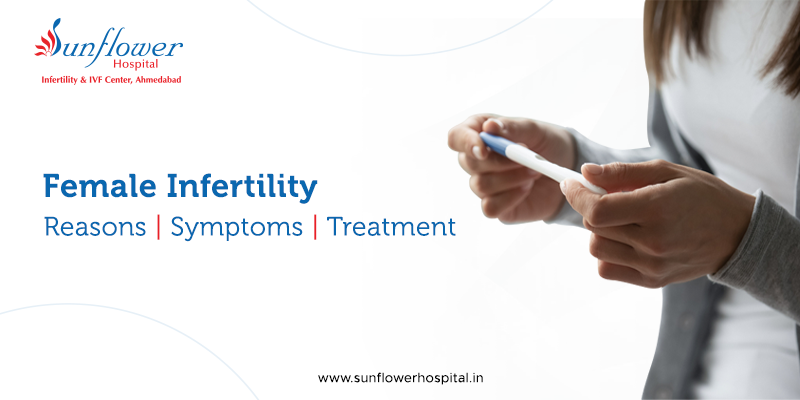The ability to reproduce a human being is a blessing to women, and every woman dreams of becoming a mother one day. However, some barriers can break this dream, and one among those is infertility.
A lot of men and women across the globe have infertility, but in this blog, we will discuss infertility in the context of a woman’s body. Infertility in females is a medical condition affecting their ability to conceive or get pregnant. There are a variety of reasons leading to infertility, which include structural complications in the reproductive system, lifestyle factors, and hormonal balance.
This condition can take an emotional toll and, as a result, can affect the overall mental well-being of the women. As a hospital providing the best infertility treatment in India, it is our responsibility to educate you about this condition. Thus, this blog.
Reasons for Infertility in Females
There are several reasons affecting fertility in women. While some might be specific to the patient, some are common, and the common ones are explained below.
- Structural issues: Structural problems in the female reproductive system indicate issues like uterine fibroids or blocked fallopian tubes that disturb the fertilization process of the egg.
- Hormonal imbalance: there are multiple hormones present in the human body, and an imbalance of those associated with a female’s reproductive system, like progesterone and estrogen, can make it challenging for her to conceive. Hormonal balance is among the most common reasons for infertility but is generally treated using medications or implementing lifestyle changes.
- Lifestyle: Some lifestyle factors like excessive alcohol consumption, smoking, being overweight, overweight, unhealthy diet, and more can affect women’s ability to conceive. Therefore, it is best to consider a healthy amount of everything and bring in the necessary changes to boost your fertility naturally.
- Age: As the age increases, a woman’s body undergoes a lot of changes, and that can increase the chances of infertility.
- Environmental factors: Excessive exposure to chemicals/toxins like lead or pesticides can also affect the woman’s ability to conceive.
- Medical conditions: Several medical conditions concerning the female reproductive system, like PCOS (Polycystic Ovary Syndrome), PID (Pelvic Inflammatory Disease), and endometriosis, can negatively influence fertility.
Symptoms of Infertility
One of the biggest signs of infertility is a woman not being able to conceive after at least a year of regular intercourse. Apart from these, some of the common symptoms include excruciating periods, irregular menstruation, heavy bleeding during the cycles, and abnormal vaginal discharge.
In case you experience or know someone experiencing these symptoms, make sure to schedule an appointment with us.
Diagnosing Infertility (H2 Tag)If you are not able to conceive after trying for a year, it is essential to visit us to get yourself evaluated.
Our doctors will conduct a thorough physical examination and might even prescribe tests like ultrasounds, blood reports, or hysterosalpingograms to identify the exact reason for your infertility.
Treatment Options Available for Infertility
There are different kinds of infertility treatments available to suit different needs of patients. However, general options are listed as follows.
- Lifestyle changes
- Medicines
- Surgery
- Assisted reproductive technologies (ART)
- Surrogacy
- Donor sperm or eggs
A Note from Sunflower Infertility & IVF Center
Infertility is the most common barrier that stops couples from conceiving. Thanks to medical technology, the condition can now be treated with the help of different treatments. Infertility experts, including the best IVF specialist in India, use state-of-the-art technology and facilities to support you through this journey. Allow us to bring the hope of experiencing parenthood into your lives.


Leave a Comment